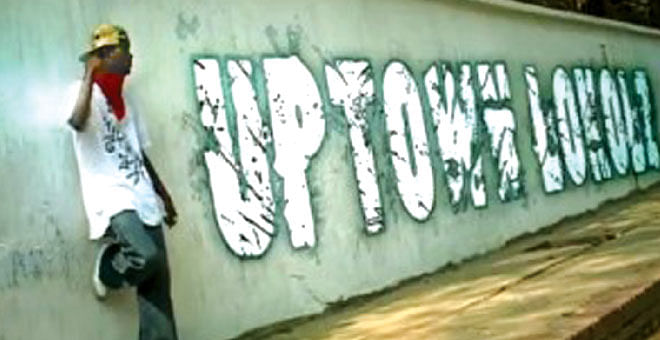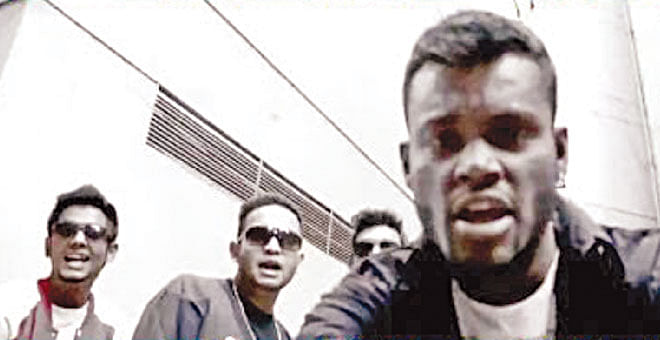Bangladesh's Hip Hop Affair
Bangladesh's Hip Hop Affair

For any music lover, especially in terms of the local music scene, to even dapple in the dark arts is an act highly frowned upon. The utterance of the shady, often misogynistic and surreal world of deshi Hip Hop is indeed prone to generate the same reaction that Voldemort's practices invoked among the magical community; shock, fear and perhaps even disgust. Therefore, turning away from the well-known names already featured in this column and moving towards this genre is akin to an act suicidal but necessitated only by the sudden rise of Bangladeshi rap, a la Stoic Bliss years earlier. For some, to rap is to blaspheme and to tout it as an art form, a sacrilege. But that's not necessarily true.
Bangladeshi hip hop has had a long and arduous journey and one that has not been all that rewarding for the pilgrims. A genre whose birth was never pre-conceived, at least in Bangladesh, the bastard child of poverty and poetry, was first brought to the mainstream Bangladeshi music scene by the American-Bangladeshi band, Stoic Bliss, back in 2005. Of 'AbarJigay' fame, the band was the first to bring this genre to the limelight and it took off from then. Many names were brought up, marketed and then shelved, proving that the Deshi community wasn't ready for an all out hip hop band. By 2006, an exception to the rule, in the form of Deshi MC's, a massively popular underground hip-hop band, came to the fore with their first album, 'Banned'. Although their album and subsequent shows and releases managed to create a hype and a following, they did not manage to fit the mould. Deshi MC's, for all their braggadocio and proclamations of pioneering gangsta rap, they did not come out as hard as people expected.

The problem with Deshi MC and other such bands, was the time-vaccum in which their works were inadvertently sucked in. The Deshi hip-hop scene, even in 2007, seemed like the global hip hop scene of post '96. Reeling from the shock of the loss of arguably two of hip-hop's greatest acts, Tupac Shakur and Notorious B.I.G, the post '96 era saw an influx of over-marketed, under-talented and unoriginal rappers, all who claimed to be this and that, but in reality sold albums only on the basis of names dropped and crimes faked. Deshi MC emerged in this scene, at a later time in a different place. Deshi MC's talent cannot be doubted but their identity surely was. 2008 saw the emergence of Deshi MCs first real rival, Uptown Lokolz, and the rap scene in Bangladesh was about to change for good.
Uptown Lokolz, a crew of misfits whose members lived the life they glorified, created their own legend. Formed by faces almost everybody new, the band made the best use of word of mouth and viral marketing. Uptown Lokolz refused to be a band and instead focused on being a movement. Their debut album, Kahini Scene Paat was a runaway success. The undeniable talent of Black Zang (Sohan), Bigg Spade and former member Safa made for delightful hearing. It wasn't all about cars they didn't drive, guns they didn't shoot and girls that didn't like them and when it was about those things, it was more playful than anything else. Black Zang's lyrical prowess gained him a large following but it was Safa, the one that got away, who built a real loyal following. Dropping verses in typical Dhakaiya Bangla, Safa can be credited with inventing the Bangla rap style, with his tongue in cheek hooks and punch lines always generating a reaction.
Their debut album also spawned perhaps Bangladesh's biggest rap hit in the form of Ai Mama Ai. Rumours of arrests, beat downs and unbridled bravado only made UL more famous. Energy packed live performances by both UL and Deshi MCs helped bring forth a whole new generation to hip hop. The band duo, inevitably, had a brief feud but it was never something of note. Uptown Lokolz had transcended from being legends in their own rhymes to actually being legends in the annals of Deshi hip-hop history. Unfortunately, Uptown Lokolz never have been replaced and nor have Deshi MCs. The industry here has again moved back to basics while branching out to Neyo, Chris Brown, Akon and Pitbull wannabes. The depravity cherished in mid 2000 has now subsided but those who were there to witness the affair and its fiery intensity can't help but ask for an encore.